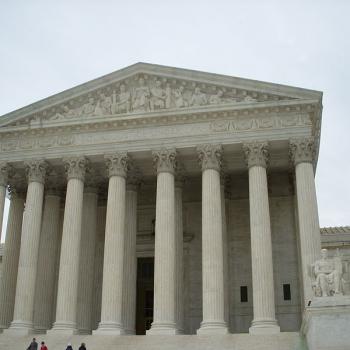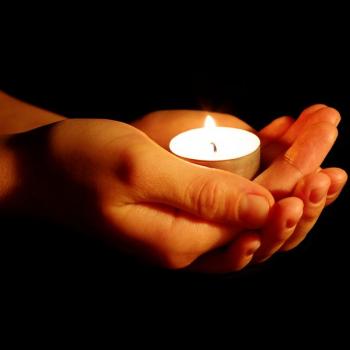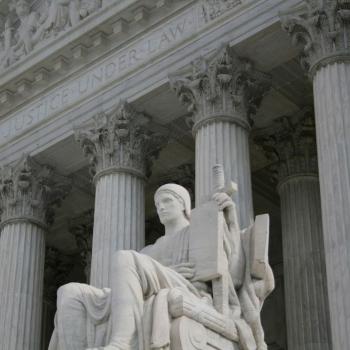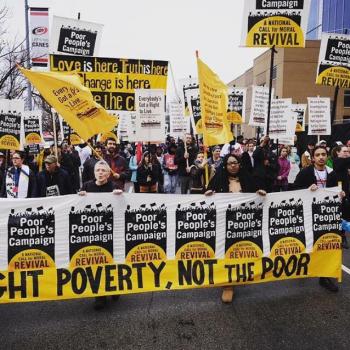Will I go to church on Easter?
I guess it’s only fair to answer that question honestly myself before asking readers their take on the question.
The best answer I can give today is probably? (And yes, there is a question mark in my voice when I answer).
Like many progressive Christians, I often struggle to go to church.
Why go to church?
It’s not really the getting up on Sunday mornings instead of sleeping in or relaxing or reading a book or talking a walk. I like to do all of those things and I find all of them restorative and sometimes sacred acts. After all, I’ve getting up and going to church on most Sundays for fifty years now.
I know its popular to say things like, “I feel as close to God in nature as I ever could in church” or some such variation. And I know that to be true too. There are many places where I feel the presence of the sacred and where I feel it is possible to celebrate and praise that which I experience as holy and numinous in the world.
But there is more to going to church than praising God. I know, right? Given the dominance of “praise music” it’s sometimes hard to remember that these days. Maybe that’s one of the reasons “praise music” annoys me so much (well, that, and the insipid, patriarchial, Jesus-centric lyrics).
So, of course, one aspect of church is praising God or the divine or the sacred or whatever you choose to call that which you believe/revere. But it is so much more than that. To think that the divine needs or desires our praise is so anthropocentric. The holy does not have an ego that needs to be stoked, folks – that’s us – humankind.
I believe that going to church is largely about two things – being community to one another and opening ourselves to hear the divine word from others. Neither of which we can really do by ourselves, in the woods or wherever else we might choose to spend our Sunday mornings (or whenever your worship time might be) by ourselves or with our intimate others.
Community is about being a blessing to one another
Being community to one another is essential for human health and well-being. Humans are an interdependent species, regardless of how hardily you believe (or have been taught) independence and self-reliance. People cannot survive and thrive in isolation. We are gestated and formed in the bodies of another. We are held and fed and cared for in our infancy and our childhood. We make it through life based on our networks, communities, neighbors, families, friends, peers, and colleagues. Humans need communities to live, even as we find ourselves increasingly isolated and caught up in a torrent of individualism that threatens to undermine all the messages the Bible has sought to teach us otherwise.
When God calls Abraham away from his father’s home and sends him to a new land, God says, “I will bless you, and make your name great, so that you will be a blessing.” (Gen 12:2) In this story, the sign of God’s blessing is that Abraham is to “be a blessing” to others. This is what community calls us to do – we are called to be blessings to those around us. To help ease their pain, to share their joys, and sometimes simply to accompany others on the difficult roads that we sometimes find ourselves on.
And yes, I know, churches can be places of pain, envy, resentment, power politics, anger, and judgment. They are, after all, made up of humans. Just because churches are made up of Christians does not necessarily make them holy. Behavior matters. Who we choose to be and what we choose to do in and with our church communities matter. And this is why theology matters.
Theology matters
Theology is the second reason to go to church. This is the reason that I often find it most difficult to get out of bed and drag myself into the pew. Theology matters. Theology is what we think and say about who and what God is and who and what we are as a people of God. This is true even for those of us who do not have anthropomorphic images of the divine or the holy or whatever it is we choose to think and believe about *God*.
I am tired of God the Father. I am tired of the traditional, patriarchal Trinitarian formulas. I am tired of preachers and hymns and creeds and prayers that reduce the divine to masculine imagery and shape a picture of a faith where men are closer to God than women – even as they deny they are doing it or dismiss the importance of diligently and faithfully opening us up to the possibilities of God rather than reinforcing the limitations of a male, patriarchal God.
Last year on Easter, I went to a church I had never been to before because a friend of mine was their new minister. I went with my family – my husband and our children. In that service, children were given bells and told to ring them whenever they heard the word “Hallelujah.” Well, as you know, that word comes u A LOT in an Easter service and there were tiny hands jangling bells throughout the entire service. It was a cacophony of chaos! I know so many, many churches where people would have been so upset by all that noise!
Feminist theology matters!
There were two women ministers. There was no patriarchal theology. Not because the pastors were female, but because they were feminist. That is why there was no patriarchal theology.
I wept throughout the whole service. My youngest kept patting my hand and handing me tissues, she didn’t know what to make of me! I wept because I felt the Holy Spirit moving through that space. I felt a sacred presence in the midst of those people and that space and I hadn’t felt in so, so long in church.
There are many reasons why people do and don’t go to church. What are your reasons? Will you go to church on Easter?
Perhaps I will. But only if I can find a space like that again.

















